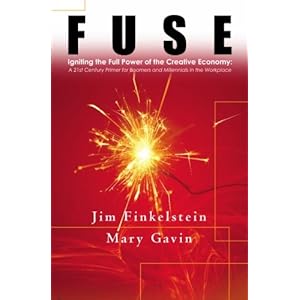 The world's most innovative communities share their secrets at at Building the Broadband Economy 2010, New York City, 19-21 May
The world's most innovative communities share their secrets at at Building the Broadband Economy 2010, New York City, 19-21 May
On May 19-21, the leaders of ICF's Top Seven Intelligent Communities will share success stories from around the world in creating and retaining the talent that powers an innovation economy. At the annual Building the Broadband Economy summit in New York City, you will hear from speakers including:
- Premier Shawn Graham of New Brunswick, Canada
- Christopher Zimmerman, Vice Chairman of the Board, Arlington County, Virginia, USA
- Mayor Larry O'Brien of Ottawa, Ontario, Canada
- Mike Galloway, Director of City Development, Dundee, Scotland, UK
- Professor Cheol-Soo Park, SungKyunKwan University
- Dave Carter, Head, Manchester Digital Development Agency, Manchester UK
- Dana McDaniel, Deputy City Manager, Dublin, Ohio, USA
- J.M.L.N. Mikkers, Mayor of Veldhoven in the Eindhoven Region of the Netherlands
- Anette Scheibe, CEO, Electrum Foundation & Kista Science City AB, Stockholm Sweden
 In 2010, the BBE summit theme is about talent and how to keep it. In today's Broadband Economy, communities must continually raise the skill levels of citizens at all ages and in all walks of life. But investments in education pay no dividends to the community if the people with new skills cannot find desirable and challenging work in the local economy. You will hear from Smart21 and Top Seven Intelligent Community leaders who have grappled with this challenge and developed innovative strategies to close the education "last mile."
In 2010, the BBE summit theme is about talent and how to keep it. In today's Broadband Economy, communities must continually raise the skill levels of citizens at all ages and in all walks of life. But investments in education pay no dividends to the community if the people with new skills cannot find desirable and challenging work in the local economy. You will hear from Smart21 and Top Seven Intelligent Community leaders who have grappled with this challenge and developed innovative strategies to close the education "last mile."
An exclusive, invitational event produced by the Intelligent Community Forum and the Polytechnic Institute of New York University, the summit attracts attendees from North America, Latin America, Europe, Asia and Africa. It is a unique opportunity to learn from the world’s most dynamic communities how to use information and communications technology to build prosperous, inclusive and sustainable communities.
The audience for BBE 2009 is limited to 300 attendees in order to provide the right environment to share knowledge and build relationships. Attendance is principally by invitation but a limited number of paid registrations are also available for Innovation America readers at a 20% discount. (Register under VIP Registration at www.icfsummit.com using VIP Code PTR2010.) Registration is now open. .
Intelligent Community Forum
www.intelligentcommunity.org


 For much of the past two years, China watchers have been increasingly vocal about the need for the country and its businesses to move from captive manufacturing towards creating entirely new products based on innovation.
For much of the past two years, China watchers have been increasingly vocal about the need for the country and its businesses to move from captive manufacturing towards creating entirely new products based on innovation.

 The face of the typical startup entrepreneur these days is a bit
wrinkly, sporting some gray hair, and having the wisdom that comes with
age. But is it a good financial move to start a business
late in life?
The face of the typical startup entrepreneur these days is a bit
wrinkly, sporting some gray hair, and having the wisdom that comes with
age. But is it a good financial move to start a business
late in life?
 WASHINGTON, May 3 (UPI) -- The U.S. Department of Commerce has announced a $12 million innovation competition designed to drive technology commercialization and entrepreneurship.
WASHINGTON, May 3 (UPI) -- The U.S. Department of Commerce has announced a $12 million innovation competition designed to drive technology commercialization and entrepreneurship.
 May 3, 2010 - The University of Virginia has named W. Mark Crowell, vice president for business development at The Scripps Research Institute, to the newly created position of executive director and associate vice president for innovation partnerships and commercialization.
May 3, 2010 - The University of Virginia has named W. Mark Crowell, vice president for business development at The Scripps Research Institute, to the newly created position of executive director and associate vice president for innovation partnerships and commercialization. The increase in cash invested in growing UK-based companies contrasted with an overall fall in financing across Europe, with the total invested down 10pc on the same period in 2009.
The increase in cash invested in growing UK-based companies contrasted with an overall fall in financing across Europe, with the total invested down 10pc on the same period in 2009.
 The company said in March 2009 that
The company said in March 2009 that  For every aphorism there is an equal and opposite aphorism. How do we reconcile "A bird in the hand is worth two in the bush" with "Nothing ventured nothing gained?" How do we make peace between "Better safe than sorry" and "He who hesitates is lost?"
For every aphorism there is an equal and opposite aphorism. How do we reconcile "A bird in the hand is worth two in the bush" with "Nothing ventured nothing gained?" How do we make peace between "Better safe than sorry" and "He who hesitates is lost?"
 Though the more ambitious effort to reform California's broken system of
government through a
Though the more ambitious effort to reform California's broken system of
government through a 
